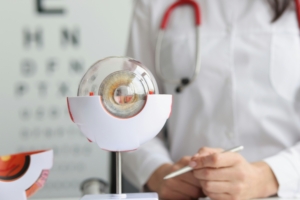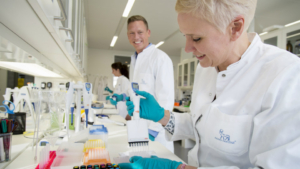How agri-biotech contributes to the EU bioeconomy
In October 2012, the European Commission issued a communication on its new Industrial policy identifying biotechnology as one of six Key Enabling Technologies. Biotech will be an important tool in helping Europe deliver on its Europe 2020 strategy of creating an innovative, resource-efficient, smart, sustainable and inclusive economy.
Due to the many challenges facing Europe and the world today – among them the threat of climate change, a decreasing amount of arable land and a growing population worldwide – we will need to use every available tool to optimise the use of land and resources and enable those in developing countries to improve their quality of life. Innovation in plant breeding is essential to feed the world’s growing numbers and help reduce poverty by improving food security. Global demand for food is expected to increase by 70% by 2050. To meet this demand, we will need to produce the same amount of food in the next 40 years as we did in the past 8,000.
However, land is the limiting factor in producing sufficient food, feed and fuel to meet global demands. Biomass should therefore always be produced with land and resource efficiency in mind, and should ultimately be used in a smart and sustainable way. To make this possible, farmers need the right to choose what they plant and grow. That will allow them to make the best use of the available resources and enable them to preserve other land for biodiversity purposes. In biobased industries, there should be a level playing field when it comes to biomass used for energy purposes and that used for high value chemicals and biobased plastics production. The production of the latter two provides greater economic benefits in terms of economic growth and jobs, and uses far smaller amounts of biomass. In addition, helping to create new markets for biobased products through incentives and public procurement would help increase the value of agricultural residues, thereby bringing greater benefits to farmers.
According to the latest global biotech crop acreage report published by the International Service for the Acquisition of Agri-biotech Applications (ISAAA), more than 18 million farmers are currently planting biotech crops on 175 million hectares. Of those farmers, more than 90% – or 16.5 million of them – are small-scale and resource-poor. The benefits of agricultural biotechnology are clear in countries that have adopted it. A recent study has shown that the adoption of Bt maize allowed Spain to reduce its imports of the crop by over 853,000 tonnes between 1998 and 2013, with consequent savings of 156m. It is time that we begin to view agricultural biotechnology as what it is: a technique that is an integrated part of the European transition to a lower-carbon, more resource-efficient bioeconomy.
Beat Spaeth
studied European affairs and languages in the UK, France and Belgium. He began
his career in 2001 at the European Parliament, where he worked as an assistant to a German MEP, before moving on to join the Brussels office of the German Retail Federation as an advisor with a focus on the environment, social affairs and corporate social responsibility. At EuropaBio, Späth currently manages the political aspects of agricultural biotechnology at the EU level. He interacts with representatives from member companies to facilitate industry positions on political developments, and communicates with EU decisionmakers on behalf of the association.




